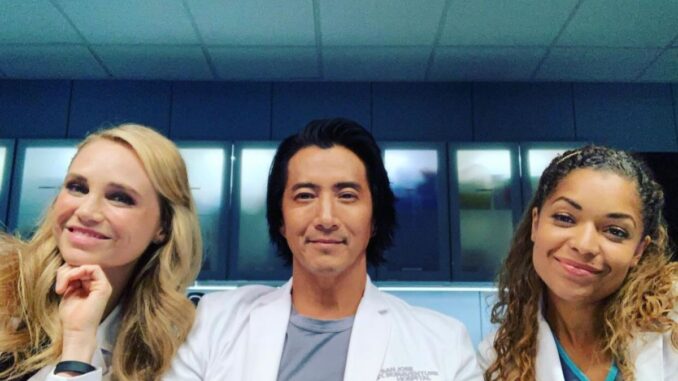
Richard Schiff is no stranger to complex, deeply human characters. From his Emmy-winning turn as the brooding Toby Ziegler on The West Wing to countless appearances across film and television, Schiff has always had a talent for portraying men with burdens—intellectual, emotional, and often both. But in The Good Doctor, as Dr. Aaron Glassman, he found something different. Not just another layered character, but a rare opportunity: to show how even the most seasoned, world-weary adults can still grow, still change, and still break your heart.
When The Good Doctor first premiered, much of the focus was, understandably, on Freddie Highmore’s brilliant portrayal of Dr. Shaun Murphy, a young surgical resident with autism and savant syndrome. Yet quietly, steadily, Schiff’s Glassman stood at the center—not just as Shaun’s mentor and father figure, but as the emotional compass of the series. He wasn’t the flashiest character, nor the loudest voice in the room. But in his stillness, in his sighs, in his furrowed brow and long glances, he gave us someone real. Someone flawed. Someone trying.
A Father Figure, But Not a Saint
From the very beginning, Glassman’s relationship with Shaun was never clean or easy. It wasn’t just about mentorship—it was deeply personal. Glassman had known Shaun since he was a child, taken him in when no one else would, believed in him when the world refused. But that didn’t mean he always knew what was best. Schiff imbued Glassman with a quiet tension—a man haunted by past losses, determined not to repeat them, and constantly wrestling with how much to control and how much to let go.
What made this relationship so compelling was its refusal to be one-dimensional. Glassman wasn’t a perfect father figure. He could be overbearing, dismissive, even manipulative at times. He made mistakes. But he also showed up, over and over again. He challenged Shaun, supported him, and admitted when he was wrong. That willingness to evolve—to admit fault and try again—became one of the show’s most important emotional throughlines.
Loss, Love, and the Long Road to Healing
Schiff gave Glassman an almost poetic sorrow. Early in the series, we learn that Glassman lost his daughter, Maddie, to a tragic drug overdose. That grief colored everything—his protectiveness over Shaun, his reluctance to form new relationships, even his disillusionment with medicine. When he’s later diagnosed with brain cancer, the audience is hit with the fear of another potential loss. But it also opened a door for something deeper: healing.
Glassman’s cancer storyline was one of the first major emotional arcs of the show. Rather than turning it into a purely medical plotline, the writers—and Schiff—chose a more intimate approach. We saw his fear, his vulnerability, his regret. But we also saw hope. We saw him let people in, fall in love again with Debbie (and later grapple with the complexities of that marriage), and learn to find joy in small moments. Schiff portrayed all of this with a gentle restraint, never overplaying the drama, but always letting the emotion simmer just beneath the surface.
